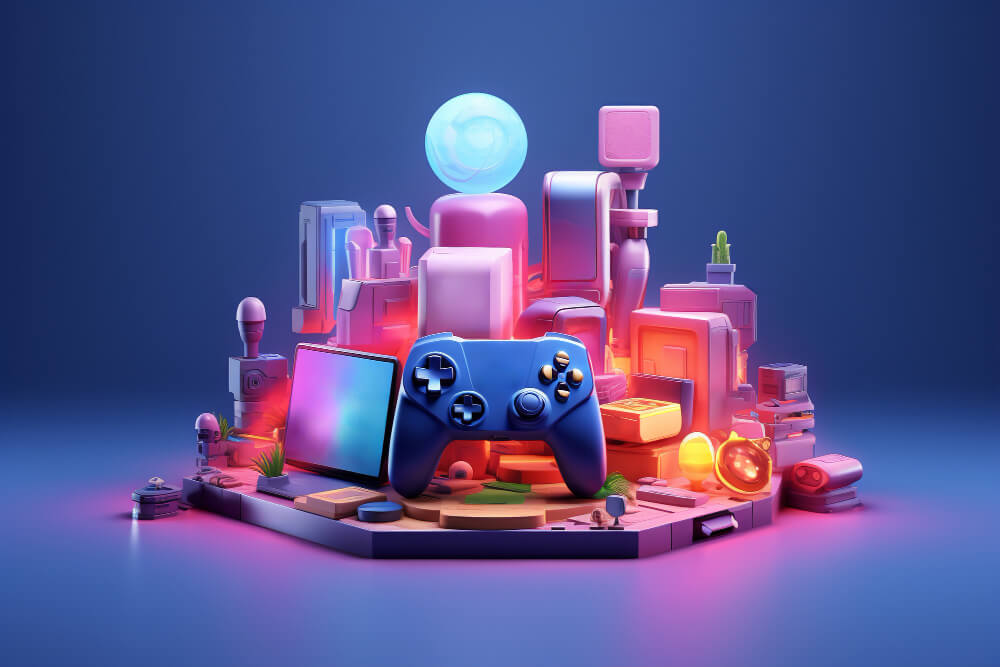– Updated on August 18, 2025
As of right now, plaintiffs have focused their lawsuits on video game developers and publishers. You likely cannot sue the marketplace for video game addiction.
Who Can You Sue for Video Game Addiction?
The current gaming addiction lawsuits target video game developers and publishers.
Others may eventually be named as defendants.
What Are Plaintiffs Alleging in Their Video Game Addiction Lawsuits?
Plaintiffs are accusing video game creators of intentionally creating addictive content to build a future consumer base and of including addictive elements in all their games.
Has Your Child Been Affected by Video Game Addiction?
What About These Video Games Is So Addictive?
The complaints allege that all video games have inherently addictive elements, such as reward systems, feedback loops, and dark patterns. Dark patterns are “tricks used in websites and apps that make you do things you didn’t mean to, like buying or signing up for something.”
According to Policy Review, an example of a dark pattern is a loot box (i.e., a virtual item you can collect and redeem). Loot boxes are ‘“merely one piece of this larger trend in dark patterns on the web,” which “can even induce compulsive or addictive online behavior,”’ according to George Washington Law Review.
Other addictive gameplay elements include:
- Grinding: Doing the same task over and over again to gain XP, increase rewards, or move on to the next level
- Dynamic difficulty adjustment algorithms: Real-time adjustments to the difficulty of a game’s behaviors, features, and scenarios, depending on the specific player’s skill level
These addictive gameplay elements can exploit the sunk cost fallacy and a child’s or teen’s fear of missing out. The sunk cost fallacy is the idea that you have already spent so much time, energy, or money on one thing and shouldn’t abandon the effort or you’ve wasted all that time. This can cause children and young adults to dedicate more and more and more time to gaming.
However, they also mention unique elements of specific games that can be especially addictive to children and young adults. Some addictive gameplay elements include:
- Call of Duty: The complaints allege that COD’s “fast-paced play, satisfying graphics, sounds, and other dopamine lifts” can cause addictive behaviors. They also claim that the game’s gun and attachment unlocks can be a form of “operant conditioning.”
- Minecraft: Minecraft allows for building worlds, which children and young adults with ADHD can become hyperfocused on. The social aspect of Minecraft can also be addictive.
How Have Video Game Creators Responded to These Allegations?
The developers of these games have already sought dismissal of these cases because plaintiffs agreed to use arbitration to resolve any disputes. They also claimed that:
- The lawsuits violate the First Amendment: The video game creators stated that these addiction lawsuits are “an attack on the First Amendment rights of video game creators.” This argument relies on the decision in a 2011 Supreme Court case, Brown et al. v. Entertainment Merchants Assn. et al. The Court determined that the First Amendment extended to video games as they are another “form of communication,” like books. This decision stated that they cannot regulate violent imagery in books, so they also cannot regulate the same imagery in video games.
- Plaintiffs can’t sue for being “too entertaining”: The defendants argued that books and binge-worthy TV shows can be just as entertaining as their games but that since people cannot sue authors and TV show creators, they should not be able to sue online game creators.
The court also rejected one case already, but this appears to be due to the plaintiff’s error.
Is There an MDL for Video Game Lawsuits?
As of July 2024, there is no multidistrict litigation (MDL) or class action lawsuit for video game addiction lawsuits. In June 2024, plaintiffs requested that the Judicial Panel on Multidistrict Litigation consolidate 15 existing cases into an MDL. The Panel rejected this request because of a “lack of common factual questions.”
However, these cases are in their infancy, so we may see an MDL in the future. If so, we can help you determine whether you want to join the MDL or file an individual complaint.
Schedule A Free Case Review!
How Do I Hold the Video Game Companies Liable for My Child’s Gaming Addiction?
To hold the online game developers liable, you must prove the following:
- Your child played video games (e.g., Roblox, Minecraft, Call of Duty, Fortnite, Grand Theft Auto) for several hours a day for a prolonged period of time, AND (one or more of the following harmful effects)
- Your child:
- Received a video game addiction, gaming disorder, ADHD/ADD, or oppositional defiant disorder (ODD) diagnosis
- Is depressed, anxious, or irritable
- Suffered an orthopedic injury, including Gamer’s thumb (de Quervain’s tenosynovitis), trigger finger, carpal tunnel syndrome, tennis elbow, neck sprain, or neck herniation
- Requires an Individualized Education Plan (IEP) or 504 Plan at school
- Needs to be homeschooled so they can play games
- Dropped out of high school or college due to gaming
- Has brain changes demonstrable via an MRI or CT scan
- Has seizures
- Lost income due to their inability to work full-time because of their addiction
- They still live at home because they are unable to support themselves due to their addiction
- Has a criminal record due to their addiction (e.g., stealing games or stealing money for game purchases)
- Has hypertension (high blood pressure)
- Is suffering from obesity
- Is suffering from sleep deprivation psychosis
- Has computer vision syndrome
- Is displaying Gamer Rage or aggression
- Prioritizes gaming over sports and hobbies
- Is cursing excessively or in inappropriate settings
- Is severely neglecting their hygiene due to gaming
- Is displaying eating pattern changes
- Socially withdrawing (has lost friends or is not making friends due to gaming)
Our law firm partners can help determine whether you qualify for a video game addiction case.
Get Help Suing Video Game Creators for Your Child’s Gaming Addiction
While you likely cannot sue the marketplace for video game addiction, you can sue the video game creators for causing your child’s gaming addiction and related issues. A video game addiction lawsuit lawyer can help.
Call The Goldwater Law Firm today for a free consultation. We can match you with a successful firm in your area who can fight for the justice you need.

The Goldwater Law Firm is on mission to help as many people as possible with the fierce, compassionate legal aid only The Gold Standard of Injury Law can offer. If you suffered serious side effects or were diagnosed with an illness because of a defective drug or product, or if you were injured in an accident that wasn’t your fault, Attorney Bob Goldwater and the Goldwater Law Firm is ready to serve as your compassionate partner in the fight to seek the compensation and justice you deserve.
Share this post:



